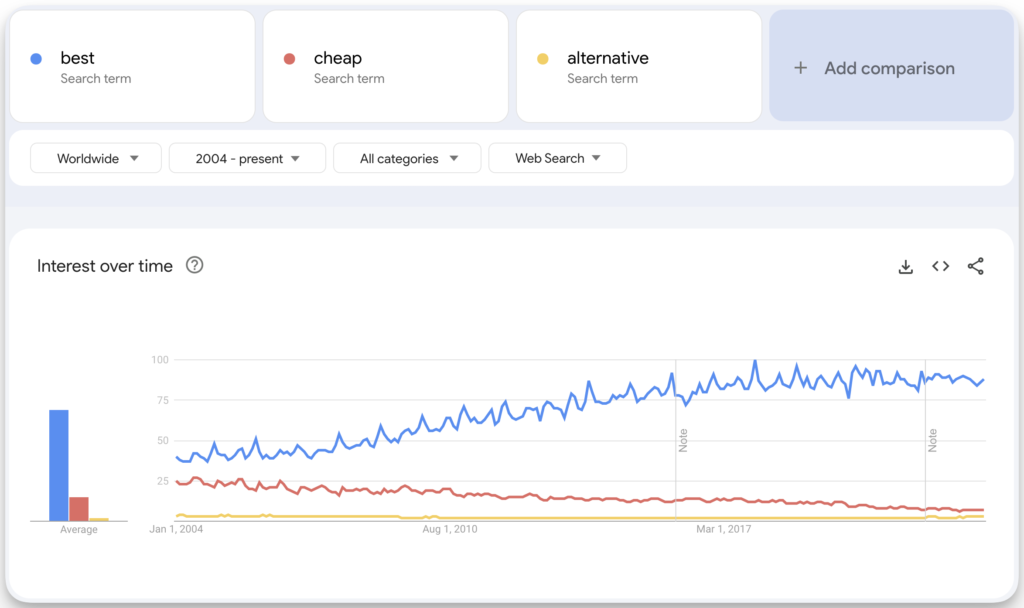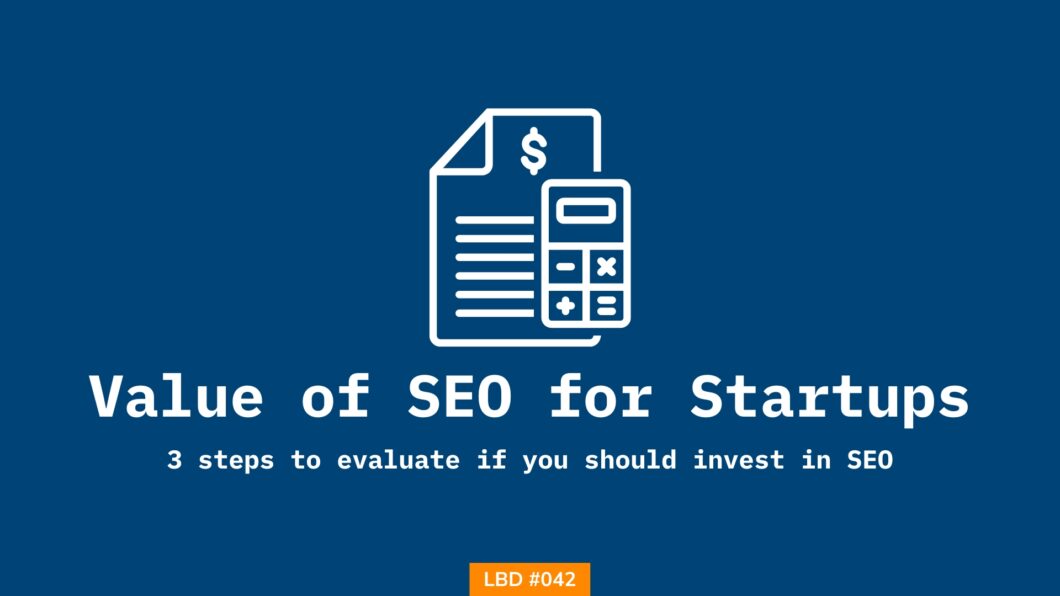Reading time: 3 minutes
TL;DR & Summary
SEO is slow as dead. The time to rely on SEO is gone. Does this sound like your brain?
By the end of this issue, you will be able to:
- Explain the cost-effectiveness of SEO to any stakeholders who’re against it
- Understand how SEO can impact your business (compared to other channels)
- Evaluate if SEO is right for you
- Convinced to allocate more budget for SEO (considering the ROI)
A lot of businesses are hesitating to invest in SEO. There are genuine reasons behind this. I understand SEO technically requires investing money for longer periods of time & results come in late.
However, when compared to PPC (that gives almost instant results) you spend only a fraction on SEO.
If you know that SEO is a better investment, you’ll spend less on PPC that works for as long as you keep paying – like a casino.
With SEO (if done right for long enough), you can get results without spending much on driving traffic. The CPA will be so low that you’d never look at PPC again.
Out of several things I could say to convince you in favor of SEO, I’ll share 3 simple steps for you to decide if investing in SEO is fruitful or not.
Step 1: Compare competitor’s data

Absolute monopoly is a myth. There’s always someone inches away from your business. Google those businesses. Or do you already have? Do you find them on SERPs?
Do you wish you should be ahead of them? Do you think you have a much better product, customer service, or customer satisfaction? Then you should invest in SEO.
If the difference in traffic from the search on your business website when compared to your competition doesn’t make you invest in SEO, I don’t know what will.
Step 2: Compare branded searches
Unless your business is a few days old, there will definitely be some searches for the branded keywords.
The same is true for your competitors. If there are branded search terms that they’re ranking #1 for (obviously it will be this way), don’t you think you should invest in SEO and claim #1 rank as well?
If you don’t rank for the branded terms, what’s the point of having a website in the first place?
People have a “messy middle” when making a decision on purchasing something. You can capitalize it if you can clear the mess they have in the middle. Google has talked about this here.

The searches for “Best” for all categories are only rising. This trend is proof that more and more people are using search to make purchase decisions. Claiming #1 branded searches makes sure that you show up in front of buyers.
It can be a valuable metric for many teams who’re working towards the success of your business. Imagine people searching “Nike” and the official website not showing up.
Step 3: Audit the customer’s research/buyer’s journey

Continuing the example of Nike. Imagine Nike creating content around customer buying journeys for the keyword “Best running shoes”. At the time of writing, there’s no result from Nike (They don’t need organic traffic for sales, direct & branded traffic is enough).
However, If I were to create content for Nike, I’d create around the customer buying journey. There are several scenarios I can rank Nike’s product/blog pages rank for.
For example this & this post. Auditing the customer journey is an exercise that will tell you if you rank for any searches and if you don’t, you know what’s that gap.
These 3 steps will help you evaluate if you should invest in SEO. Sure, these aren’t the only 3 checkpoints, but in my opinion, these are a really good start.
Today’s action step → Compare your organic traffic with that of your competitor. See the difference & identify areas of improvement, especially if you’re hesitant to spend on SEO.
SEO this week (News Updates)
- Why is my site not indexed? – Search off the record
- Another indexing question from a different angle – AskGoogleBot
- The Core Web Vital report under Google Search Console will now show INP status (Interaction to Next Paint). Learn more about INP & how to optimize INP
- After publically accepting that Google will rank good content, ‘however’ it’s produced. Google’s John Mueller shares his opinions on using AI tools for content writing.
- What’s the ideal word count to rank on Google? Is that even a thing? Read more here
Clickworthy resources (from LinkedIn, Twitter, YouTube & web)
- Auto-generate FAQs (including schema) based on PAA
- How you should perceive SEO & Sales? Learn here
- Have your minds blown, thank me later
How can I help you?
I put a lot of effort to come up with a single edition of this newsletter. I want to help you in every possible way. But I can do only so much by myself. I want you to tell me what you need help with. You can get in touch with me on LinkedIn, Twitter & Email to share your thoughts & questions that you want to be addressed. I’d be more than happy to help.
If you’re looking forward to winning online, here’s how I can help:
- Sit with you 1-on-1 & create a content marketing strategy for your startup. Hire me for paid consulting.
- Write blogs, social posts, and emails for you. Get in touch here with queries (Please mention you found this email in the newsletter to get noticed quickly)
- Join my tribe on Twitter where I share SEO tips (every single day) & teaser of the next issue of Letters ByDavey.

